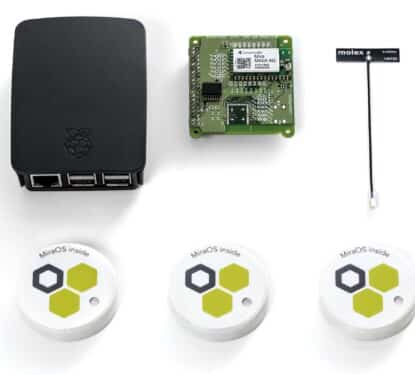The cyber physical systems (CPS) revolution is well underway. All manner of physical objects in our buildings and cities are being brought online under the banner of the Internet of Things (IoT). Objects with the ability to sense their environment and reason about the implications, are optimising processes, creating value, enhancing resiliency and developing responsiveness. A new paper, however, takes this a step further by introducing the notion of activity-aware CPS.
“Activity-aware systems are valuable when transforming cities to smart cities because the services, such as building automation, transportation routing, and energy provisioning, can now adapt to the needs of individual users,” suggests the paper by Brian L. Thomas and Diane J. Cook, entitled ‘Activity-Aware Energy-Efficient Automation of Smart Buildings.’
The hypothesis of the paper is that smart buildings, a key component of smart cities, can benefit from being activity aware. It was tested, with regard to energy efficiency using the foundation of a prototype activity-aware building automation system, called CASAS, to create CARL (CASAS activity aware resource learning).

“By recognizing the current activity, a building found in a smart city is sensitive to its residents and does not turn off devices that they need,” the paper puts forward. The objective of CARL in this study is to automate a smart building by turning off devices that are not needed for the current activity and leaving on devices that are required. The study further enhances user adaptation by predicting when the current activity will end and the next begin.
“By providing this activity-aware energy-efficient building automation, smart cities can realize energy savings while still meeting the needs of the individuals who live and work there. To validate our notion of an activity-aware energy-efficient building, CARL is evaluated to determine its ability to efficiently automate an actual smart building without disrupting resident activities,” the paper, published in Energies Journal in August 2016, explains.
In 2015, the United States consumed 97.651 quadrillion BTU of energy, a 300% increase from 1949, and buildings are responsible for 40% of that energy consumption, according to the Energy Information Administration (EIA). Recently it has been shown that consumption can be reduced significantly through behavioural change. In fact, a report by the UK Department of Energy & Climate Change showed that residents reduced consumption by 15% after simply seeing raw usage data.
“We don’t want to make a smarter thermostat, we want to make smarter people” said Kamin Whitehouse, Commonwealth Associate Professor of Computer Science in the UVA School of Engineering and Applied Science. As explored in our article ‘Adding Human Intelligence to Smart Home Automation’, Whitehouse and his team believe that instilling a sense of accountability can bring about energy savings and benefit the user experience.
Providing users with information about the relationship between their activities and energy consumption, with automation support, for energy reduction will likely lead to substantial decreases in overall consumption. While automating buildings for energy efficiency has been investigated extensively, the new study represents the first known approach in which activity awareness is implemented to more intelligently automate the built environment.
For this study, the system was implemented and evaluated in the context of a single resident apartment, smart home environment. Smart homes have recently been a focus for major technology firms such as GE, Intel, iControl, Control4, Brillo and Google, who are creating smart home operating systems, interfaces, developer platforms and maintenance plans for the consumer.
The final result of the study demonstrated that by using activity-aware automation reduces device utilization by 56% and reduces energy consumption by as much as 50%. The ideas are demonstrated in the context of a smart home but can be utilized in a variety of smart city settings including smart offices, smart hospitals, and smart communities.
Looking forward, the researchers hope to use CARL to, not only turn off devices that are not currently needed in support of current activities, but to also automatically turn on devices that are needed. In addition, “CARL will be enhanced by segmenting and smoothing activities, reducing the amount of jitter in activity labels and improving activity prediction performance.” Meaning that device utilization and energy consumption figures could further reduce.
In the longer term, Thomas and Cook intend to evaluate CARL in a greater number of automated buildings to show “the combined energy reduction that can be realized using an activity-aware approach to designing smart buildings and smart cities”.



